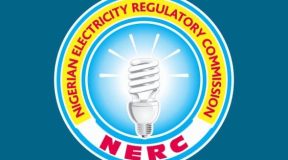The World Bank has scheduled December 16 as the tentative approval date for a fresh $1 billion Development Policy Financing (DPF) loan to Nigeria under a new initiative tagged “Nigeria Actions for Investment and Jobs Acceleration (P512892)”.
According to a project document published by the bank on October 27, the facility consists of a $500 million International Development Association (IDA) credit and a $500 million International Bank for Reconstruction and Development (IBRD) loan.
Falling under the bank’s Macroeconomics, Trade and Investment practice area for Western and Central Africa, the new funding aims to support ongoing economic reforms, promote job creation, and accelerate private investment. It is part of a broader World Bank effort to consolidate Nigeria’s post-reform stability and drive inclusive growth across key sectors.
The loan will be implemented through the Federal Ministry of Finance, and the World Bank has confirmed that the preparation process has been authorised to proceed.
“The proposed Development Policy Financing supports Nigeria’s pivot from stabilization to inclusive growth and job creation,” the document stated. “Structured as a two-tranche standalone operation of US$1.0 billion, it seeks to catalyse private sector–led investment by expanding access to credit, deepening capital markets and digital services, easing inflationary pressures, and promoting export diversification.”
Since 2023, Nigeria has introduced major reforms — including fuel subsidy removal, exchange rate unification, and an end to central bank deficit financing — as part of President Bola Tinubu’s Renewed Hope Agenda. These measures have helped stabilize the economy and restore investor confidence, though growth remains slow, with over 130 million Nigerians still living in poverty.
The World Bank noted that while macroeconomic stability has improved, Nigeria’s economy “has yet to shift decisively into a higher and inclusive growth path,” emphasizing the need for fresh investment to boost productivity, diversify exports, and create jobs.
The $1bn policy loan is structured around two main pillars:
Unlocking private sector growth by improving access to credit, deepening digital inclusion, and supporting key legislative reforms such as the Investment and Securities Act 2025, new CBN Rulebooks, and the National Digital Economy and E-Governance Bill 2025. Reducing costs for firms and households by simplifying trade barriers, adopting AfCFTA tariff concessions, and improving certified seed systems for crops like rice, maize, and soybeans to enhance food security and competitiveness.
The loan aligns with the Paris Climate Agreement, supporting climate-resilient agriculture, digital governance, and low-emission systems. Upon approval, the funds will be released in two tranches, tied to progress on policy milestones, and monitored by the Federal Ministry of Finance, the Central Bank of Nigeria, and relevant ministries.
The initiative is expected to anchor Nigeria’s transition from short-term stabilization to long-term inclusive growth potentially marking one of the largest World Bank policy support programmes for the country in recent years.
As of June 30, 2025, Nigeria’s external debt stood at $46.98 billion, with the World Bank Group accounting for $19.39 billion (41.3%), making it Nigeria’s largest single creditor and a key partner in the nation’s development financing efforts.




